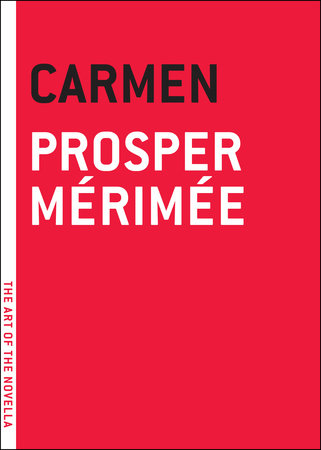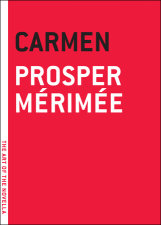Carmen

The novella that was the basis for perhaps the most popular opera of all time, Prosper Mérimée’s Carmen is the swashbuckling story of a nineteenth-century Spanish soldier who deserts his post to pursue the fiery gypsy beauty, Carmen—who is as brave as she is fickle.
The opera’s plot, it turns out, is based only on part of the larger adventure that is Carmen. The story opens, for example, with the narrator, a historian like Mérimée, researching the lost site of an ancient Roman battle on the plains of Andalusia, when he meets a notorious bandit, Don José Navarro, on the run from the law. Feeling a certain sympathy for Don José, whose face is “at once noble and fierce,” and a…
$10.00
August 13, 2013Prosper Mérimée was born into a family of artists in Paris in 1803. He studied law and languages in school, and in 1825, he published his first book, Le Théâtre de Clara Gazul—a purported translation of plays written by a Spanish actress and translated by one Joseph L’Estrange. He followed this up with another “translation” of a selection of folk ballads under the title La Guzla. No less a personage than Pushkin was convinced, quoting a few of the ballads in his own work. In 1834, Mérimée was appointed inspector-general of historical monuments, a job for which he was uniquely suited with his linguistic and scholarly skills. He successfully led a protest movement to save the medieval walled city of Carcassonne…
